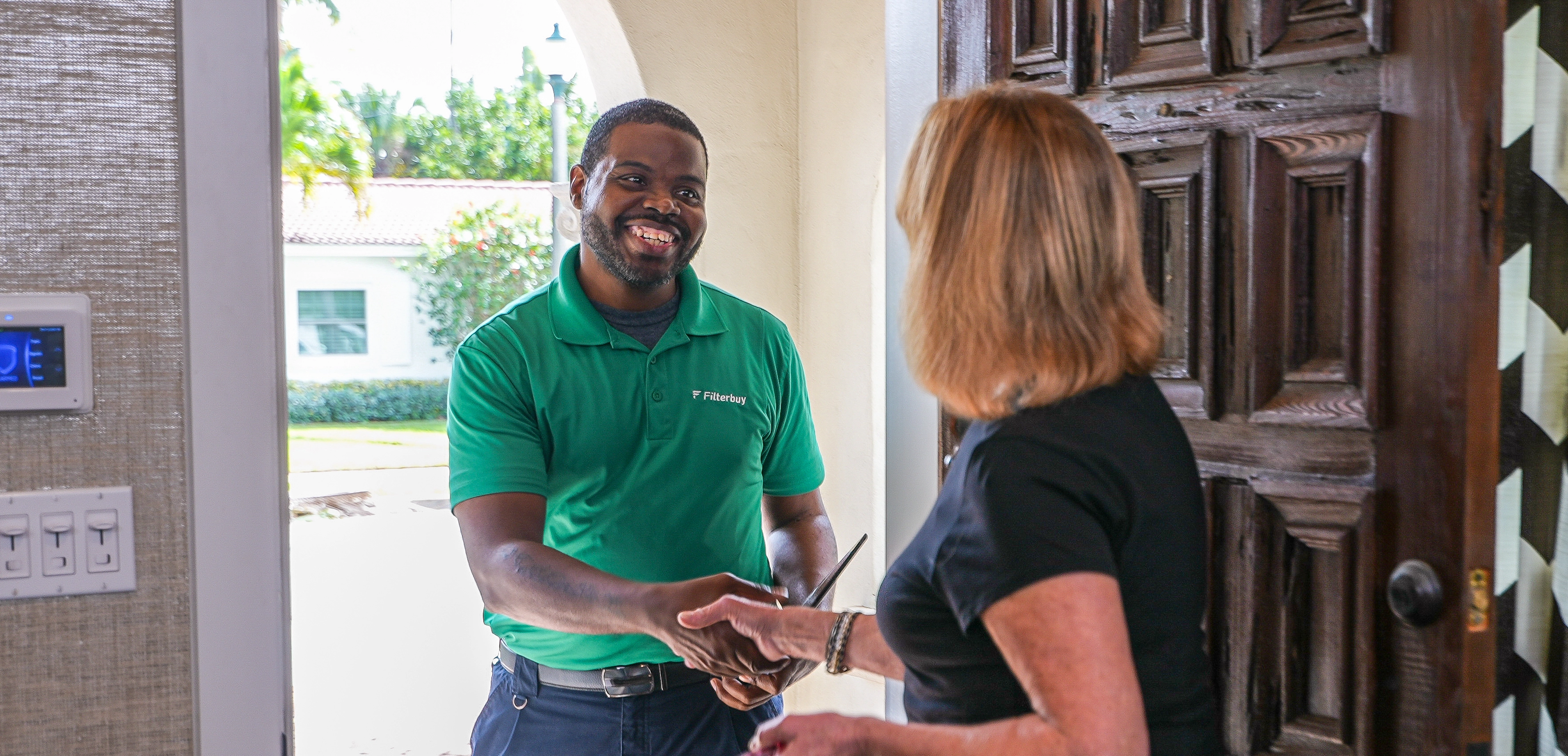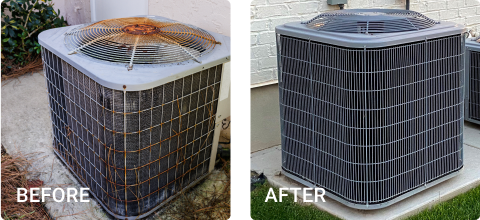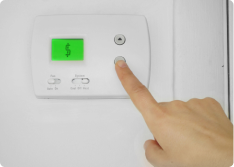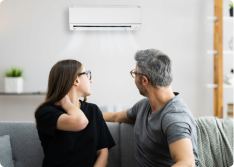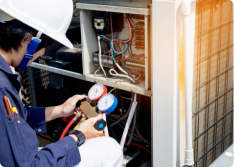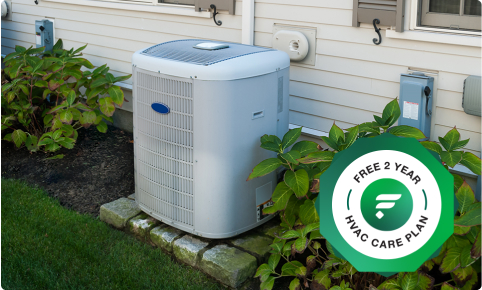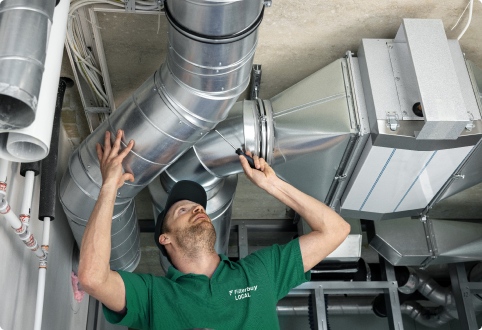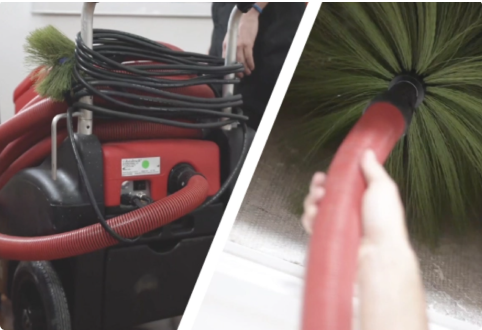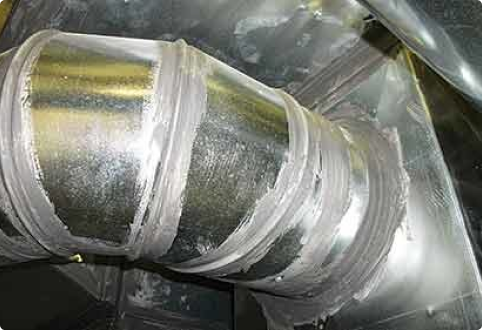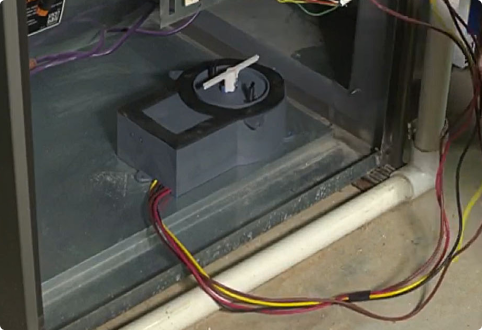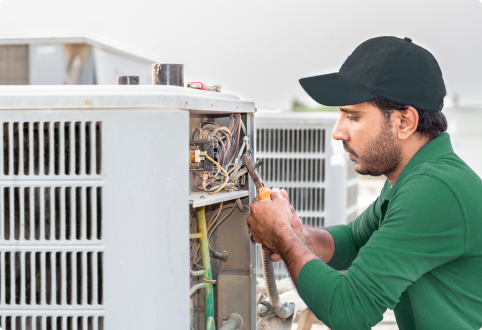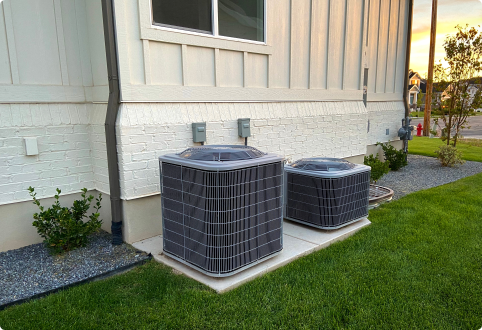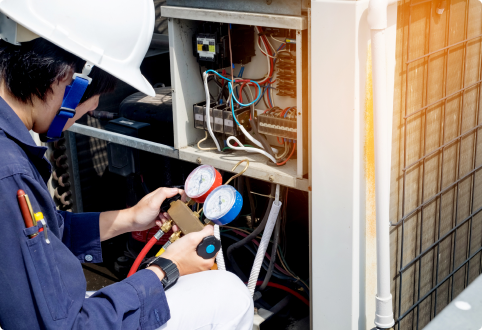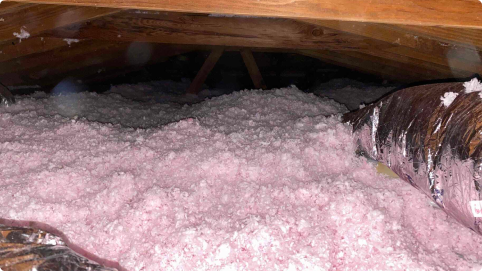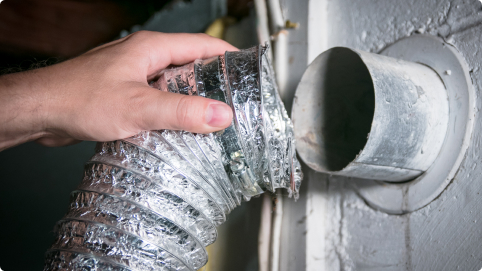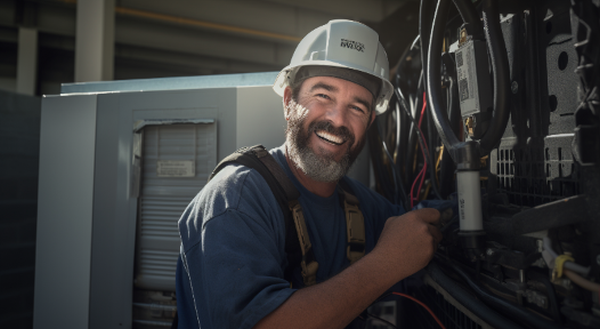Welcome to Filterbuy HVAC Solutions, the best HVAC system installation service company proudly serving in and near the greater Miami, FL area. Please let us know how we can help solve your Miami HVAC system installation needs with professional, affordable, and fast residential and commercial HVAC services by getting a free online quote or by giving our friendly HVAC specialists a call. We look forward to hearing from you!
Why Choose Filterbuy for Your Miami Florida HVAC Installation Company?
Living in Miami FL can feel like being part of a melting pot of cultures, where each sunset over the ocean tells a different story. Walking through Little Havana, you can't help but feel that every step reveals a new thread of its rich history. But sometimes, Miami can get really hot. That's why you need a reliable HVAC system to keep your home cool and comfortable.
So if you’re considering an HVAC installation in Miami, here’s why you should let us be your trusted partner.
Key Takeaways
■ Expert technicians ensure your HVAC system runs smoothly and lasts longer.
■ Top-quality products designed to withstand Miami’s climate.
■ Competitive pricing ensures you get the best deal without sacrificing quality.
■ Outstanding customer service means we care about you and will help you with anything you need.
■ Energy-efficient solutions help cut energy costs and help the environment with energy-saving solutions.
When should you get a new AC?
If your AC is making strange noises, smells bad, or just won't turn on, it could be time to replace it. Need help? Call a trusted HVAC installation company in Miami. Look for these qualities.
1. Price Matching Guarantee
We promise to give you the lowest price without making the product worse because we know that’s important in Miami where the cost of living is so high!
2. Expert Technicians
We know how important it is that you get quality work because HVAC systems are expensive to repair and replace. You can count on our technicians to meet the utmost stringent certification standards as well as undergo the necessary training it takes to keep updated with the latest industry standards. Trust our team with your home and your new shiny HVAC system!
Our technicians complete a comprehensive training program that covers HVAC fundamentals, advanced troubleshooting, and modern installation practices. This ensures they are equipped to handle even the most complex installations.
3. Green Carpet Treatment
Experience our Green Carpet Treatment, we believe in fair pricing. The quote you get is the price you pay. We're honest about our prices, so you can trust us.
4. High-Quality Products
Filterbuy makes strong HVAC products that can handle Miami's hot and sticky weather.
Choosing Filterbuy means investing in durability and a reputable brand. Our products are made with the best stuff so they last a long time and work really well.
We use the highest quality parts to build our AC units. This means fewer breakdowns and cleaner air for your home. People trust us to make great HVAC products.
5. Competitive Pricing
Filterbuy offers you the best price without getting a worse product.
We buy things in big batches to save money, and we pass those savings on to you. Whether upgrading your existing setup or installing a new one, Filterbuy’s competitive pricing ensures you get the best deal.
6. 0% Financing, $0 Down
New installs qualify for excellent financing terms, including 0% financing with $0 down. Ask us for details on how we can make your new HVAC system more affordable.
7. 2 Years of Free Maintenance
Every HVAC system needs regular maintenance for optimal performance. With Filterbuy, your new system comes with 2 years of free maintenance. We’ll ensure it runs smoothly and efficiently, so you can enjoy peace of mind.
8. 1-Year Extension to Labor Warranty
For new installations, we extend our general 1-year labor warranty to an extra year, giving you 2 years of coverage. This additional protection provides extra peace of mind, just in case.
9. 24-Hour Support
We are here for you 24/7. We're here to help you with your AC, anytime, day or night for any HVAC emergencies or questions, ensuring your comfort is never compromised.
10. Exceptional Customer Service
We care about you and want to help. Tell us what you need, and we'll find the best stuff for you. We're always trying to get better.
11. Energy Efficiency Solutions
Using less energy makes your HVAC work better and saves you money. Filterbuy wants to give you the best and most energy-saving air conditioners in Miami.
We'll find out what's wrong with your AC and how to fix it.
Our special filters make your AC work better and save energy. This saves you money and makes your HVAC unit last longer.
How to make your HVAC system last longer in Miami?
One of the most important things is to change your air filter every 3 months to keep your AC working well.
Check out the other services we offer in Miami Florida including HVAC system repair, dryer vent cleaning, air duct cleaning, and more.
Thinking about a new AC? Here are 5 tips from an insider before you buy.
Frequently Asked Questions:
How Much Does a New HVAC System Cost Florida?
The cost of installing a new HVAC system in Florida can cost from $3,000 to $10,000 or more.
Factors such as the size of your house, how the AC is set up in your house and geographic location can change the price.
Additional elements like permitting fees and potential savings from energy-efficient models also impact the overall budget.
Curious about what else could affect your investment?
Factors Affecting HVAC Costs
A lot of things can change the cost of installing a new HVAC system in Florida.
The home's size significantly affects installation expenses, as larger spaces require more powerful units. The complexity of existing ductwork can increase costs if extensive modifications are needed.
Geographic location within Florida also plays a role since labor rates and material costs vary.
Beyond the initial setup, consider ongoing maintenance requirements. Regular servicing, which includes cleaning filters and checking for leaks, is essential to keep systems running efficiently and can add to long-term expenses.
Can a Homeowner Install HVAC in Florida?
Thinking about installing an HVAC system in your Florida home?
Consider the state's stringent regulations. Homeowners generally face restrictions that prevent them from performing such tasks themselves. These rules aim to ensure that installations comply with local building codes and energy efficiency standards, which are vital for safety.
Attempting a DIY approach can be dangerous and get you in trouble.
Should you do it yourself or ask for help to ensure compliance and safety?
Let's explore your options further.
Understanding Florida HVAC Regulations
You need to follow the rules when you put in a new HVAC system in Florida.
You need a permit before you start building. Without them, fines and unsafe installations are possible.
Florida law includes specific requirements, such as compliance with energy efficiency standards and local building codes. Verifying that your HVAC system meets these criteria avoids legal issues.
Get certified professionals who know what they're doing to check your new AC.
Follow these rules to make sure your HVAC is installed correctly.
What Is the Most Common HVAC System in Florida?
You might wonder about the most common HVAC system in Florida, given the state's hot and humid climate.
Central air conditioning systems dominate the market, cooling large spaces efficiently and maintaining consistent indoor comfort.
Homeowners often choose high SEER-rated models to keep energy bills manageable and increase property value.
But what makes these systems so effective in such a challenging climate?
There's more to consider when selecting the ideal system for your home.
Central Air Conditioning Systems
Florida's heat needs powerful AC units. Energy efficiency and installation costs should be primary considerations.
Choose an energy-efficient unit to save money and reduce carbon footprints. Look for units with a high SEER (Seasonal Energy Efficiency Ratio) rating for the best results.
Getting a new AC can be really expensive. Budgeting for these components is essential.
Despite the initial cost, an efficient system can offer long-term savings and enhanced home comfort. Weighing these factors carefully helps in making an informed decision.
Why Does HVAC Installation Cost So Much?
Wondering about the steep HVAC installation costs? It's not solely about the price of the unit. Modern systems involve complex technology, labor expenses, and necessary modifications like ductwork, all contributing to the final bill.
Efficient systems, though expensive initially, offer long-term savings and environmental benefits. The layout of your home can further complicate the installation process.
So, what drives these costs, and how can you manage them effectively? Let’s talk about the key factors influencing these expenses.
Factors Influencing HVAC Costs
Several key elements directly impact HVAC installation costs.
Energy efficiency stands out as a primary factor. Opting for a highly efficient system often means higher initial expenses. However, this investment can reduce utility bills over time.
Installation complexity also plays a significant role. Greater complexity generally leads to increased labor costs. Factors like home layout, system type, or extra ductwork contribute to this complexity.
Knowing these things will help you plan and save money.
Do You Need a Permit for HVAC Replacement in Florida?
If you want to replace your HVAC system in Florida, you need a permit to make sure it's done right.
However, each municipality enforces its own specific rules. What should you do to get a new AC without any problems?
Knowing the rules and local requirements can save you time and money, but there's more to think about.
Understanding Permit Requirements
Replacing an HVAC system in Florida requires understanding specific permit requirements. File a permit application to your local building department to make sure your project follows local regulations and safety standards.
Rules change from place to place, so check local laws before starting your project. If you skip the permit, you could face fines or complications with homeowner insurance policies.
A valid permit ensures that your installation is inspected and meets all safety codes, providing peace of mind. Talk to an expert to help you with the rules and paperwork.
What Is the Life Expectancy of an HVAC Unit in Florida?
How long the life expectancy of an AC in Florida will last depends on a few things.
Salt air and high humidity can damage AC units in coastal areas.
Regular maintenance can add years to your AC's life.
High-efficiency models may offer extended longevity, but only with proper care.
What specific actions can help ensure your HVAC system reaches its maximum lifespan? Let's explore further.
Factors Affecting HVAC Lifespan
Several factors impact the durability of an HVAC unit in Florida.
Regular care, like cleaning and check-ups, helps it last longer. Ignoring upkeep can cause deterioration, lowering efficiency and longevity.
Things like humidity, storms, and even hot weather can damage your AC. Taking good care of it will keep you cool and save you money on HVAC repairs and installation costs.
Fix these problems to keep your HVAC system working well and your home comfy in Florida's hot weather.
What Is the New AC Code in Florida?
Florida's updated AC code focuses on enhancing energy efficiency and reducing utility expenses.
These new regulations require stricter installation standards and highlight the importance of proper sealing and insulation to curb energy loss.
Installers must follow more precise protocols to ensure systems operate efficiently for longer durations.
This shift aims to foster sustainability and provide long-term benefits.
But how will these changes impact your home or business?
Let's examine the potential effects on your property.
Key Components of the New AC Code
Beginning this year, Florida's new AC code enforces stricter energy efficiency standards. Cooling systems must now meet updated requirements aimed at reducing energy consumption and lowering utility bills.
Regulations also demand higher installation standards to ensure optimal performance and longevity of air conditioning units. Every part of your AC must follow the new rules.
You need to install it the right way to make it work well.
What Seer Is Good for Florida?
When selecting the ideal SEER rating for Florida, consider the state's unique climate and your home's specific requirements.
Ratings of 16 or higher are often suggested to handle sweltering heat efficiently while keeping energy costs manageable.
Is a higher SEER always the best choice? The size of your house and how well it's insulated will also make a difference.
Talking to an HVAC expert can help, but there's more to think about.
So, where do you start?
Understanding SEER Ratings
Pick an AC that uses less energy to cool your home. Look for a high SEER rating. SEER, or Seasonal Energy Efficiency Ratio, measures the efficiency of an air conditioner throughout a cooling season.
However, be cautious of SEER myths. A lot of people think that the highest SEER rating is always the best choice, but that's not true. Higher ratings offer better efficiency but also come with higher upfront costs. Evaluate specific needs and budget to determine the optimal SEER rating, balancing efficiency and cost-effectiveness.
Are Heat Pumps Better Than AC in Florida?
Heat pumps are usually better than regular AC units because they use less energy.
Heat pumps cost more to buy, but they can save you money on your electric bill in the long run.
Heat pumps also offer year-round climate control, suited for Florida's distinct weather patterns.
Before deciding, weigh personal preferences, cooling needs, and available financial incentives for energy-efficient systems.
So, what factors will drive your choice?
Heat Pumps Vs. Traditional AC
How do heat pumps and traditional air conditioners work?
Heat pumps are like magic! They move heat instead of making it, so they use less energy and cost less to run. They excel in energy efficiency. However, installation costs can be higher than those of traditional AC units.
Traditional AC units are cheaper to put in, but they cost more to run.
In Florida, heat pumps can save you money in the long run, even though they cost more to buy.
Ultimately, the choice hinges on balancing short-term installation costs with long-term energy savings and overall system performance.
Here is the nearest branch location serving the Miami FL area…
Filterbuy HVAC Solutions - Miami FL - Air Conditioning Service
1300 S Miami Ave Unit 4806, Miami, FL 33130
(305) 306-5027
https://maps.app.goo.gl/XDTMcEGZ1vdktKqJ6

.webp)
.webp)
.webp)
.webp)






